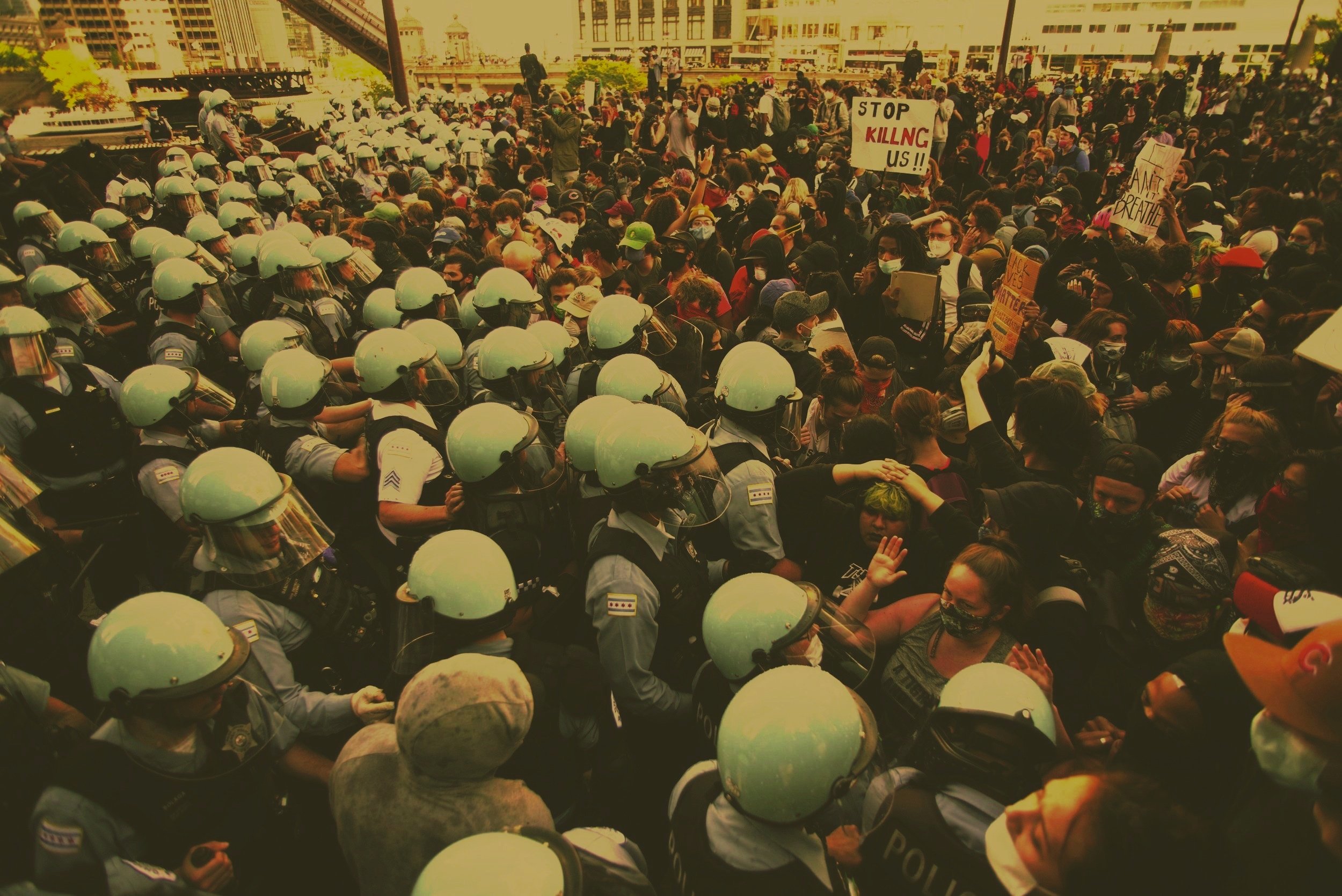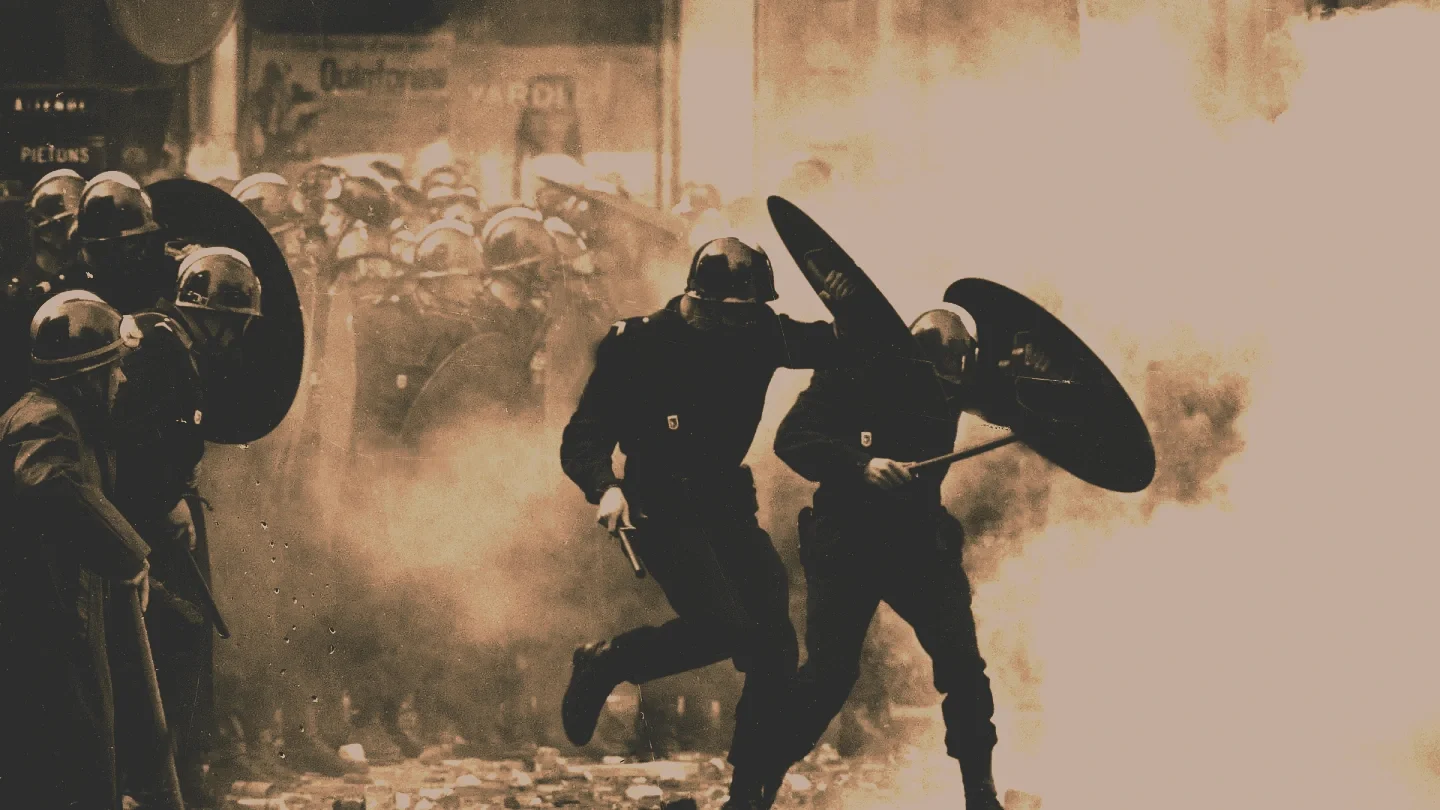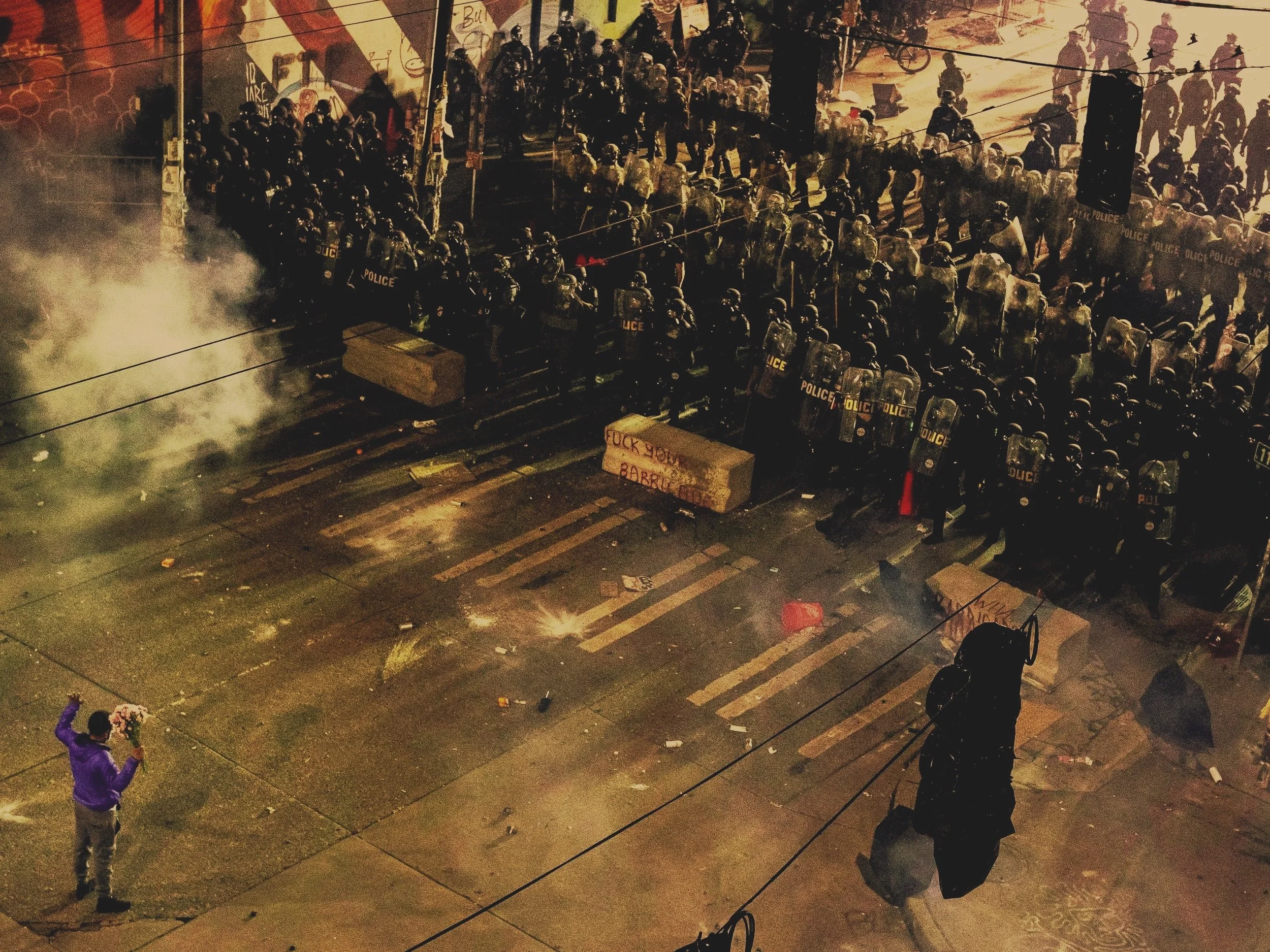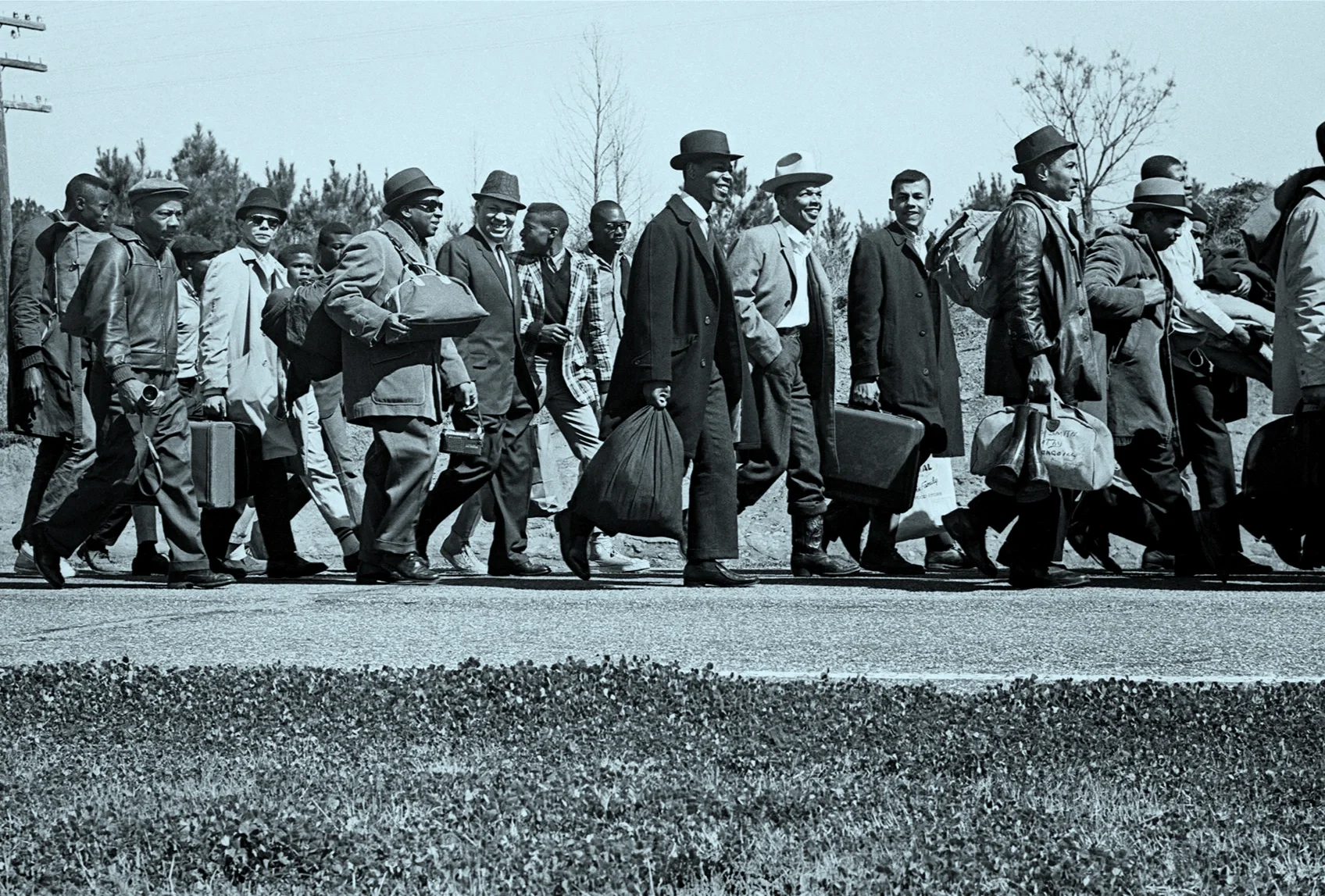
I work at the intersection of democratic theory, Black and anticolonial political thought, and social movement studies. I am particularly interested in exploring activist practice as a source and a site of political theorizing, and in the ethics and politics of resistance (nonviolent, violent, and otherwise) under conditions of colonial and racial domination. My earlier work focused on reconstructing the way Civil Rights organizers and activists — alongside and engaged with anticolonial movements around the globe — cultivated civil disobedience as a practice of radical disruption, critical disclosure, and self-liberation, in hopes of decolonizing and rebuilding the world.
My new work, some of which is detailed below, picks up on some of these threads to reexamine the politics of the “internal colony”; the vision of self-emancipation shared by Martin Luther King, Jr. and Frantz Fanon; the aesthetic politics of nonviolent protest and police violence; and the place of police in democratic theory.
Recently Published & Forthcoming
-

The Mississippi Runs into the Mekong: SNCC & the Internal Colony's Collisions and Recursions
This chapter, forthcoming in Movements in American Political Thought (SUNY Press; ed. Alex Zamelin and Max Burkey), reexamines the analytic purchase and political entailments of the “internal colony” — long maligned as an inadequate analogy for racial domination in the United States — by rooting it in the Black radical activist praxis out of which it emerged. As SNCC organizers encountered the problem of the Vietnam War within emerging discourses of Black America as part of the Third World, they turned to the language of internal colonialism not simply to analogize their suffering to colonized peoples, but in an effort to name the imperial collisions and recursions that crisscrossed the boundaries between foreign and domestic, subjecting differently situated peoples to constitutively linked forms of racial-colonial violence.
-

To Remake the World: Frantz Fanon & Martin Luther King, Jr. on Self-Emancipation
This essay was published as part of a special issue of South Atlantic Quarterly on radical international political thought (2024, ed. Alina Sajed and Begüm Adalet). This essay positions King and Fanon as partners in a shared conversation, each grappling elements of a core dilemma: remaking the world requires new subjects not formed by domination, but these subjects must remake themselves while still enmeshed in them—must somehow act out of them. Reading with and against David Scott's (2004) conception of a “problem-space” shows how King and Fanon respond to the problem posed by the impossibility of a clean, emancipatory break with the past and present. Deploying Paul Gilroy's (1993) conception of antiphony, the essay stages a “call and response” that reveals not a romantic narrative of overcoming but a working-through of fragile, partial, and paradoxical political practices that yoke the self to a world-not-yet-made, cultivating nascent democratic publics who, as yet, lack a world in which they can survive.
-

Policing the Public Sphere
This chapter, forthcoming in Critical Encounters with Habermas’ Legal and Political Theory (Brill; ed. John Abromeit, Matthew Dimick, and Paul Linden-Retek) returns to Between Facts and Norms to ask: in Habermas’ discourse theory of law and democracy, where are the police? I argue that they are both everywhere present and largely unthought, standing in the shadows and at the margins of the public sphere, and stationed at the junctures of the “tense relationship between the law-and-order guarantee of the state’s monopoly of legitimate violence and the claim to legitimacy of the democratic legal procedure” (Habermas 1985a, 130). Revisiting the absent presence of police in Habermas’ work—marking the boundary of a public sphere imagined to be free from coercive, administrative state power—brings into relief the police’s “pathologically jursigenerative” relationship to law, and the threat they pose to Habermas’ radical democratic aspirations. A critical theory of democracy attuned to this threat must, I conclude, insist on seeing police, and seeing them clearly.
Works in Progress
-

Displays of Force: Black Insurgency and the Spectacular Violence of Police
“The whole world is watching.” Perhaps no phrase better encapsulates our hopes for what might be politically possible when the ordinary violence of police becomes an extraordinary public spectacle. But what is the shape of the world that is watching, and what is the political work performed by such a spectacle within it? This project interrogates the spectacle of police violence as an ambivalent multiplicity: a set of complex displays and encounters that solicit a variety of affective responses and inaugurate contradictory political possibilities. Fed through the logics of white supremacy, the scene of the “protest” is never fully free from the scene of the “riot”; the victims of the violence are also readily interpretable as aggressors; and the retaliatory and repressive violence of policing invites not just moral outrage but also rationalization, distancing, and eager identification with cruelty.
-

The Nonviolent Sublime
Description goes here -
New List Item
Description goes here